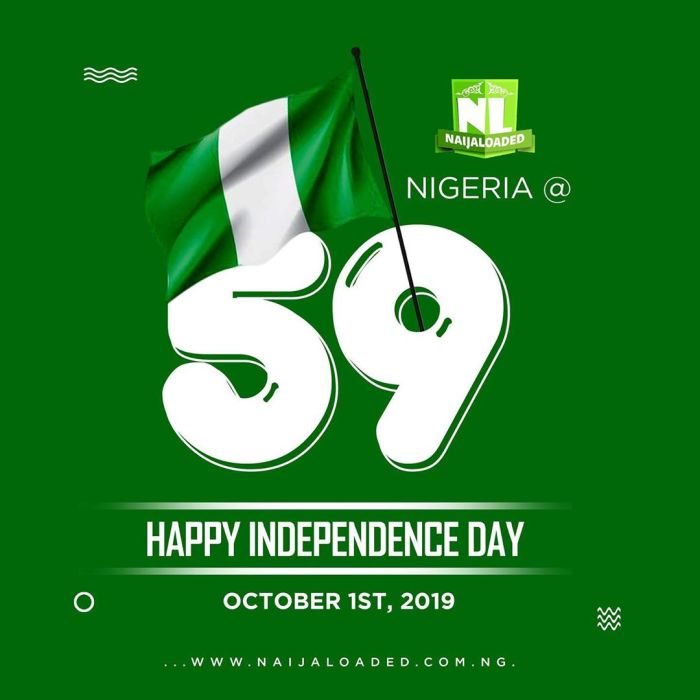Nigeria attained her independence from Britain in 1960 but before the attainment of independence, there were heroes among her citizens that fought for self-governance
. Looking back in time and following the path of history, here is a list of five important Nigerians who helped fight for Nigeria’s independence.
Herbert Macaulay:

Born in 1864, Herbert Macaulay was the grandson of Bishop Ajayi Crowther and he was trained as an engineer. He is considered the founder of Nigerian nationalism as the movement was under his influence in the 1920s. He started the nationalist movement because of the belief that the people of different backgrounds living in the British colony of Nigeria needed to come together as one. He returned to Nigeria in 1893 after completing his studies in London as the first Nigerian to be sponsored by the colonial government for a professional course abroad. He joined the colonial civil service and this exposed him to the ills and irregularities of the colonial government which led him to get involved with politics to fight for the rights of Nigerians. He founded the Lagos Daily News to promote the nationalist movement. He was the first Nigerian to establish a political party in 1922, the Nigerian National Democratic Party (NNDP). He became the first national president of the National Council of Nigeria and the Cameroons (NCNC), party he co-founded with Nnamdi Azikiwe in 1944. Macaulay’s political activities were limited to Lagos affairs until the very end of his life and he was on a nationwide campaign in 1946 when he took ill and died on May 7, 1946, in Kano.
Dr Nnamdi Azikiwe:



Born on the 16th of November, 1904 in Niger state, Benjamin Nnamdi Azikwe was at the forefront in the fight for Nigeria’s Independence. He was fondly referred to as “Zik” and became the first president of Nigeria after Nigeria got her independence from the United Kingdom. While working as the editor for the African Morning Post, a daily newspaper in Ghana, Nnamdi Azikiwe promoted pro-African nationalist agenda. Upon his return to Nigeria in 1937, he founded the West African Pilot which was a tool used to promote the cause of Nigerian nationalism. Alongside Herbert Macaulay, he founded the National Council of Nigeria and the Cameroons (NCNC) in 1944 and he was made the secretary-general of the National Council in 1946. He was later elected to Legislative Council of Nigeria the following year. He was the first Nigerian to be named to the Privy Council of the United Kingdom and he also became the Governor-General on the same day. With Nigeria becoming a republic in 1962, he became her first president. He died on May 11, 1996, in Enugu following a protracted illness.
Chief Obafemi Awolowo:



Chief Obafemi Awolowo was born on March 6, 1909, in Ogun state. He was also one of the pioneer leaders that fought for Nigeria’s independence and he introduced free education in the western region in 1955. After completing his education abroad, he returned to Nigeria in 1947 and took up practice as a barrister. However, while he had been in London, he wrote his first book “Path to Nigerian Freedom” in which he criticized the British administration and advocated for self-governance. He also helped to found the Egbe Omo Oduduwa (Society of the Descendants of Oduduwa, the mythical ancestor of the Yoruba-speaking peoples), an organization devoted to the study and preservation of Yoruba culture. He was also the founder of the political party Action Group in 1950, a party that called for the termination of British rule in Nigeria. In 1954, he became the first premier of the Western Region. During his lifetime he wrote several books such as “Thoughts on the Nigerian Constitution”, “The People’s Republic,” “The Strategy and Tactics of the People”s the Republic of Nigeria.” He resigned his position as commissioner of finance and vice chairman of the Federal Executive Council in 1971 to protest the government’s continuation of military rule. He died on May 9, 1987, and was buried on June 6, 1987.
Sir Ahmadu Bello:



Born on June 12, 1910, Sir Ahmadu Bello was the 1st President of the Northern Peoples Party (NPP) in 1951 and he was also the former premier of Northern region. He alongside Abubakar Tafawa Balewa took active roles in the struggle for an independent Nigeria. Upon his return from England, he got a nomination to represent Sokoto in the regional House of Assembly. He used his position there to promote the development of the northern emirates such as Kano, Bornu and Sokoto. He became the first Premier of Northern Nigeria in 1954 and in 1959 independence elections, his party NPC won a plurality of the parliamentary seats. His party later formed an alliance with Dr Nnamdi Azikiwe’s NCNC to form Nigeria’s first indigenous federal government which led to independence from the British colonial masters. He was also responsible for the modernization and unification of the diverse people of the North. He was assassinated in a coup on January 15, 1966, while still serving as premier of Northern Nigeria.
READ ALSO: President Buhari addresses the nation
Chief Anthony Enahoro:



Chief Anthony Enahoro was born on 22 July 1923 and was one of Nigeria’s foremost anti-colonial and pro-democracy activists. He became Nigeria’s youngest editor ever at the age of 21 when he became the editor of Dr Nnamdi Azikiwe’s newspaper, the Southern Nigerian Defender, Ibadan, in 1944. Chief Enahoro joined the struggle for Nigeria’s independence in the early 1940s acting as a student leader and leading protests. He was on two occasions jailed by the colonial government for sedition and writing satiric articles. In 1953, he became the first to move the motion for Nigeria’s independence and is usually referred to as the father of “Nigeria State.” His motion was however rejected and a successful motion did not come till 1958, the motion was made by Chief Remi Fani-Kayode. He died on December 15, 2010.



Leave a Reply